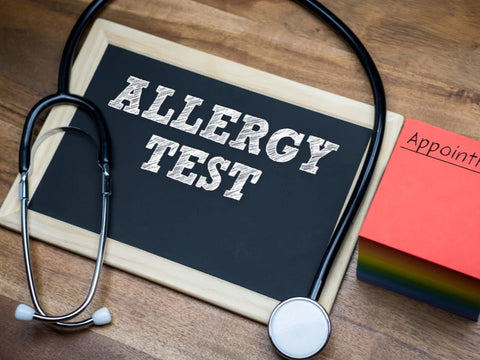Are you living with an undiagnosed medical condition?
Are you seeking treatment for an ailment that is not responding to your therapies?
Do you have health challenges that your doctors cannot resolve, no matter what you try?
Have you considered that the source of the problem may actually lie… in your gut?
Many people suffer for years with undiagnosed gut conditions that steal their health, deplete their energy and baffle doctors who struggle to make sense of their symptoms, before finally realising that an underlying imbalance in the gut is the source of all of their troubles.
Numerous conditions ranging from Leaky Gut to IBS to parasitic infections–and even undetected food sensitivities–contribute to chronic inflammation and serious health problems, like hypothyroidism, obesity and dementia – even cancer and heart disease.
For some people, symptoms of trouble in the gut are obvious: gas, bloating, diarrhea, constipation, and food sensitivities are all clear indicators of poor digestive health. But sometimes, we live with these symptoms for so long that we cease to notice them. Loose stools or the inability to move our bowels becomes our normal and we give it little thought when addressing our ‘real’ health concerns…
For others, problems in the gut can be contributing to disease without any obvious indicators. GERD, IBS, SIBO and Leaky Gut can all be asymptomatic, but still create major problems for our health!
In order to heal our secondary conditions, we must begin with the root of the problem by healing our gut.
The numerous gut health issues that can underlie our health challenges have very similar symptoms. We can take advantage of a range of diagnostic tests to positively confirm our diagnosis and guide our treatment plan.

A spectrum of blood, urine, stool and even breath analyses can detect evidence of conditions like Leaky Gut and SIBO, infections like Candida and parasites, deficiencies of nutrients and hormones, toxicity caused by heavy metals and mold, and even food allergies and sensitivities.
If you’re pursuing testing, you’ll want to work with a qualified medical practitioner to help you make sense of your results. With a little luck and effort, you may find a wonderful professional in your community to guide you through this process. Search online or ask around for practitioners of Functional Medicine or gut health specialists.
If you do not have access to a gut health expert in your hometown and are unable to travel to one, do not fret. Many experts offer online, international consultations. You can have test samples collected at a lab near you and have the results sent to the doctor of your choice, wherever they may be.
Let’s take a closer look at some specific tests that you can use to make sense of your symptoms and chart a course to a healthier you:
Great Plains Laboratory offers many tests that reveal imbalances in our guts. Consultations about results are included in every test. Some of their tests that may be helpful in tracking down the source of your symptoms include…
-
Organic Acids Test
The Organic Acids Test is strongly recommended as the initial screening test for dysbiosis. The simple, non-invasive, at-home test detects over 70 markers, including vitamins and antioxidants, oxidative stress, energy production, detoxification, neurotransmitter levels, oxalates and intestinal yeast and bacteria.
(More information on the Organic Acids Test here.)
-
IgG Food Allergy Test
The IgG Food Allergy Test is helpful for structuring elimination diets and identifies foods responsible for symptoms like bloating, nausea, headaches, mood changes and fatigue. 93 foods are tested and delayed reactions are identified. Delayed reactions can take up to 3 days to manifest so using a test will take a lot of the guesswork out of determining the cause of your symptoms. Elimination of IgG positive foods can improve symptoms of IBS, autism, ADHD, cystic fibrosis, rheumatoid arthritis and epilepsy.
The IgG test from Great Plains Laboratory also checks for presence of Candida overgrowth. An overgrowth of Candida can cause Leaky Gut, contributes to chronic inflammation and is linked to disorders including autism, MS, depression and chronic fatigue.
(More information on the IgG Food Allergy Test here.)
-
GPL-TOX Profile
The GPL-TOx Profile screens for 172 different non-metal toxic chemicals that we are exposed to through pharmaceuticals, packaged foods, household products and environmental pollution. Chemical toxicity causes hormonal imbalance and gut dysfunction leading to weakened immunity and systemic inflammation.
(More information on the GPL-TOx Profile here.)
-
Mycotoxic Profile
Measure your exposure to mold with the Mycotoxic Profile. Diseases and symptoms linked to mold exposure include heart disease, asthma, cancer, loss of vision and memory, chronic fatigue, depression, anxiety, ADHD and liver damage. Test detects exposure to 40 different species of mold.
(More information on the Mycotoxic Profile here.)
-
Metals Hair Test
The hair test is ideal for checking exposure to toxic metals. Scalp hair reflects systemic levels of elements and deviations are often detectable in the hair before symptoms of metal exposure manifest, making this a great tool for early detection. The Metals Hair Test reports levels of arsenic, cadmium, lead, antimony and mercury.
(More information on the Metals Hair Test here.)
-
Comprehensive Stool Analysis
The Comprehensive Stool Analysis detects presence of yeast, parasites and bacteria that contribute to chronic illness and neurological dysfunction. This test has the potential to isolate and identify many pathogens.
Conventional testing for parasites often yields false negatives because in order for a parasite to be detected by this method the stool sample must contain a parasite in a particular phase of its life cycle and the parasite must be alive at the time the sample is taken and when it reaches the lab. Getting a false test result does not guarantee the absence of parasites. Comprehensive Stool Analysis is much more sensitive than the conventional method because it can detect any presence of parasitic DNA.
(More information on the Comprehensive Stool Analysis here.)
In addition to the thorough panel of options available from Great Plains Laboratory, Dr. Nirala Jacobi, “the SIBO Doctor,” recommends and offers breath tests for detecting SIBO. Bacterial fermentation in the small intestine yields hydrogen and methane which are absorbed into our bloodstream and excreted when we exhale. The SIBO Basic Test uses QuinTron BreathTracker, the gold standard for SIBO testing. The test is easy and convenient to administer at home and all results include protocols for resolving SIBO.
(More information on the SIBO Test here.)

Testing is the first step to healing. It allows us to positively identify the imbalances that are making us sick and pursue remedies that will be most effective in restoring our health. Problems in our gut lead to major health challenges, though the link may not be readily apparent. We can use tests like the ones described here to identify our underlying conditions, which allows us to achieve greater health, energy and vitality.













What Do You Think? Comment Below: